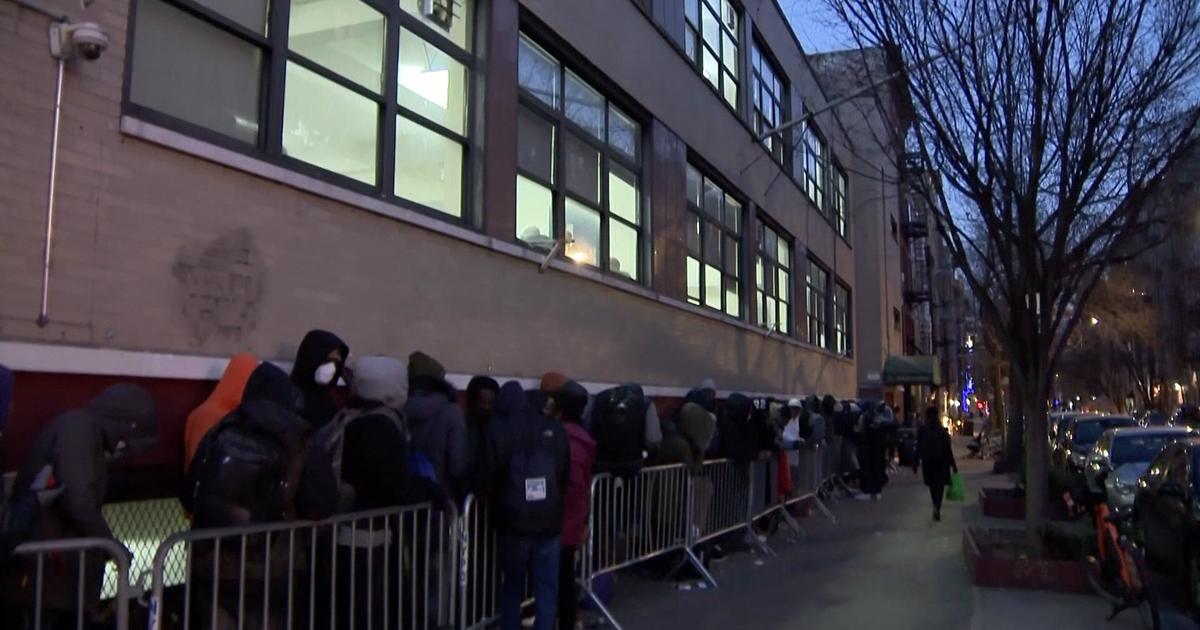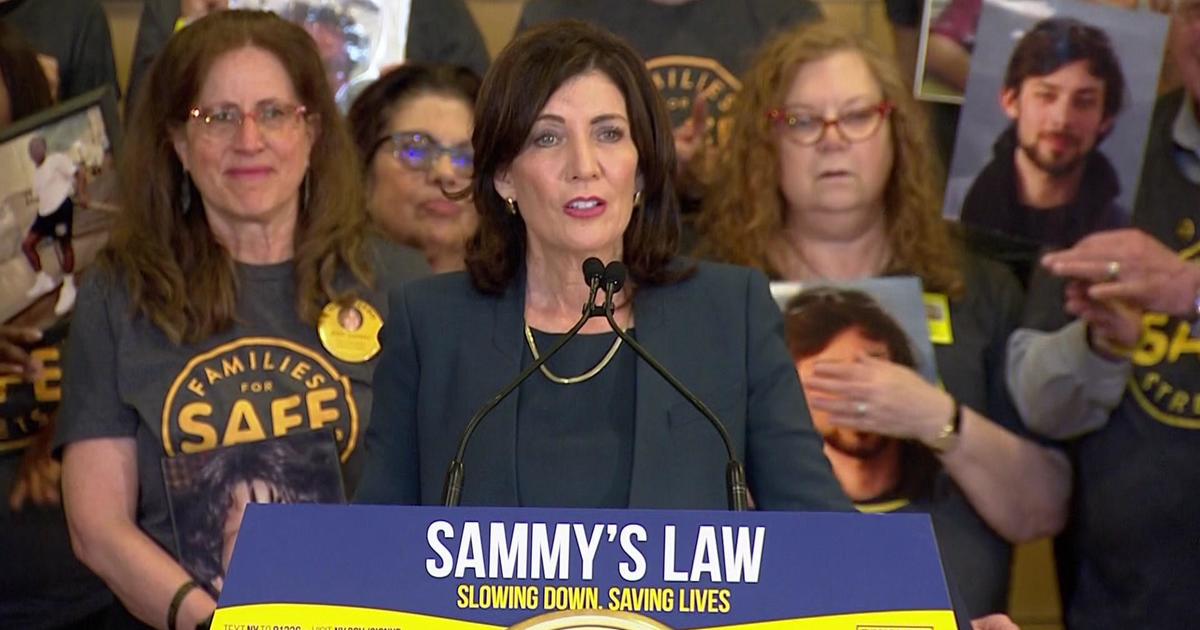Through A New York Eye: Hurricane Season
By: Lou Young, CBS 2 HD News
The storm in the Atlantic has us watching this week, ready to respond. We think we know what to expect, but we know we can never be sure. Five years ago Katrina showed us that much, ambling over Florida, and seeming to fade before turning into a monster in the warm Gulf of Mexico and leveling, LEVELING parts of that beautiful shoreline before forcing the wholesale evacuation of a major American city for the first time in modern history. The notes I took that week might help us remember how fragile we are in the face of such natural fury.
Notes from Hurricane Season -- A reminder.
Sept. 2005—Category 3 (Katrina) 4:00 AM
I should be able to sleep but I can't. That's a bad sign.
We're indoors for the first time in a week. The bedroll is laid on the floor of a fitness center at the West Jefferson Parish Medical Center near New Orleans. It's air conditioned finally and quiet but the chatter and images of the past few days have accumulated in my head and the noise of it has invaded the quiet places that exist on the edge of sleep. Writing this, I think, will help.
Sections of this country have become visions of the apocalypse where timid survivors pick through rubble-strewn beaches and gather water in plastic buckets from broken plumbing in wreckage along the shore.
In Biloxi, Mississippi for two days last week I searched in vain for a row of million dollar homes that had vanished in the tsunami-like storm surge of the storm. Looking up I saw towels, blankets and mattresses fluttering high in the surviving trees. One massive royal palm tree was bent at a 45-degree angle by the wind that had sheered it over at the storm's zenith. The strange elbow was 25 feet above the high, dry land where I stood: it was the waterline at the height of the storm. The sight evoked an image of towering water and screaming winds, panic, terror and death by drowning trapped in twisted mountains of debris sucked out to sea. You could not look at it without shuddering.
My final day on that dead dusty shore I thought I'd seen it all. That's when we found a baby's casket high on a mausoleum in a ravaged old cemetery, placed there by someone who'd found it nearby on the beach. The tiny metal box had been lifted from its resting place by the raging waters. It's chrome handles were pitted with rust. Many of the nearby graves had been emptied by the retreating storm surge. It was so disturbing my cameraman and I left the shade of the trees along the shore to walk back to our campsite along the beach in the blistering sun. What we saw there was even worse.
The once pristine sands leading down to the Gulf was littered for as far an eye could see, with the remnants of lives lived in leisure. The things one keeps at a beach house were everywhere soaked and half buried in sand: furniture, bags of rotting food, a CD case with Ozzy Osborne's picture on it, a videotape, a chair, a foosball table, and a child's toy. In one spot the motor from a washing machine sat in the sand at the water's edge, too heavy to lift yet put there by the vast wall of water as it returned to the sea. There was something every few feet across a wide swath of beach stretching off in both directions and out into the blue-green water, horribly vanishing in dark swirls of oil and sewage. A shocking whiff on the sea breeze tells you few bodies are buried here. There was a dog's carcass under a section of collapsed wall, tangled in the electric wiring and silver-plated wine bucket gleaming in the sun. I felt nauseous.
The Police Chief of the city said he could've used an airdrop of MRE's from the military, FEMA, anyone; He was the first person I heard suggesting the federal government should've been doing more. In desperation he ordered his officers to break into a privately owned supermarket to distribute food to stranded residents who'd ridden out the storm's terrible landfall. When the city water system's emergency generators began to run low on diesel fuel, he also sent patrol cars up onto I-10 to pull over tanker trucks escort them into town and confiscate the fuel headed for a businesses in Alabama and Florida. "We need it worse," he said.
Leaving the beach and heading further west to New Orleans offered no respite from the sense of displacement and disorder. I saw first hand the now familiar images of an American city drowned and desperate. Where there should have been a helping hand, there were bands of armed men looking for looters, most of them imaginary. Here, the bodies floated in plain view. The smell was pervasive. When the story was over we threw away the sleeping bags, boots, and clothing we wore.
In Mandeville, Louisiana on the approach to the Lake Ponchartrain causeway I watched a gas station and convenience store open up for the first time since the storm's approach to this coast. A crowd gathered. There was laughter because every customer who walked in made a beeline for the cold beer in the cooler only to come face to face with a padlock and chain. Alcohol and firearms, it seems, aren't sold under martial law even in Louisiana. "Maybe I should hold the beer for you for safe keeping," more than one person suggested. A moment later someone asked those of us returning from New Orleans across the causeway if it's still bad. "Better," comes the answer. Then, "as if it could get worse?" Laughter again, then silence.
What took them so long? Who knows? "I heard the President today; he says he'll get the people that did this," someone said. There's a pause then a loud groan and a belly laugh. No one was buying the argument that this landscape of misery and neglect was the best we could do. No one.
 CBS 2 HD News Reporter Lou Young
CBS 2 HD News Reporter Lou Young
A native New Yorker, Lou Young joined CBS 2 in June 1994. He has served as a broadcast journalist in the New York market since 1981, working at both WABC-TV (1981-1990) and WNBC-TV (1990-1994). His blog, "Through A New York Eye," is the longest-running blog on CBSNewYork.com. To send a message to Lou, click here. You can also follow Lou on Twitter.com by clicking here.



